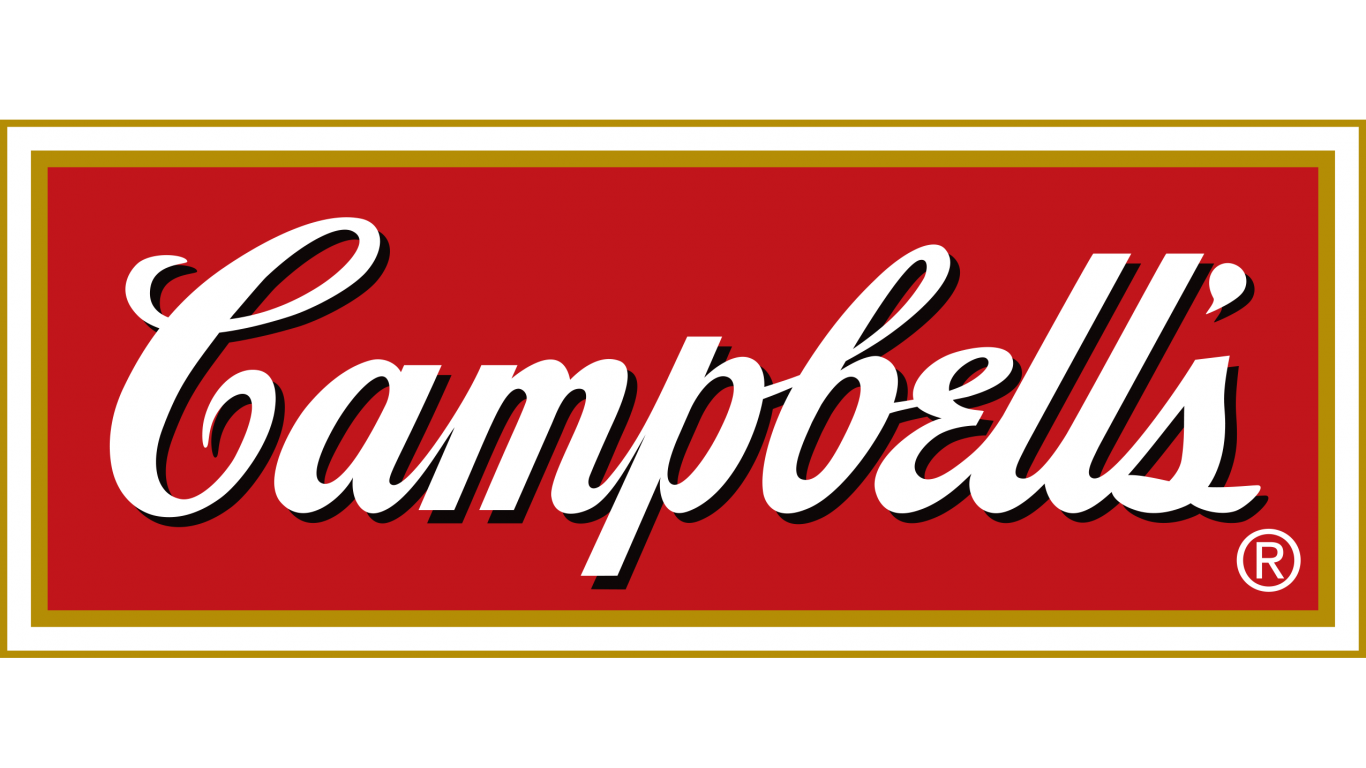
This post may contain links from our sponsors and affiliates, and Flywheel Publishing may receive
compensation for actions taken through them.
In May, Campbell Soup Inc. (NYSE: CPB) CEO Denise Morrison unexpectedly resigned and the company announced that it had begun a full-scale operational review of its businesses. Interim CEO Keith McLoughlin announced the first results of that review Thursday morning when the company also reported fourth-quarter and fiscal year 2018 results.
Campbell’s results were less than spectacular. Excluding recent acquisitions, the company’s net sales fell 3% for the quarter and 2% for the year. Adjusted fourth-quarter earnings per share (EPS) fell 52%, from $0.52 to $0.25, and full-year EPS fell 6%.
McLoughlin drew the obvious conclusion:
Fiscal 2018 was a challenging year for Campbell. These results and our outlook for fiscal 2019 reinforce the need for the significant actions we announced this morning as part of our comprehensive, Board-led strategy and portfolio review. We believe these actions will put us on a path to create sustainable shareholder value.
The results of that review include divesting the Campbell International and Campbell Fresh businesses and using the cash generated from the sales to pay down debt.
Campbell International consists of Arnott’s and the Kelsen Group, along with the company’s manufacturing operations in Indonesia and Malaysia and its businesses in Hong Kong and Japan. Campbell Fresh includes Bolthouse Farms, Garden Fresh Gourmet and the company’s refrigerated soup business. The two businesses generated $2.1 billion in fiscal year 2018 sales.
The company plans to focus on its packaged food businesses in North America and expects to save $150 million in costs by streamlining its organizational structure, expanding its zero-based budgeting efforts and continuing to optimize its manufacturing network (that last sounds like plant closings). Added to cost-saving programs already underway, Campbell expects targeted savings of $945 million by the end of fiscal year 2022.
That’s four years away. Campbell noted that the target savings along with organic net sales growth of 1% to 2%, adjusted EBIT growth of 4% to 6%, and adjusted EPS growth of 7% to 9% “reflect expectations beyond fiscal 2019 and assume the completion” of the divestitures announced today.
That’s not good enough for some investors. Dan Loeb’s Third Point, which owns about 5.65% of the company’s outstanding stock, has already said that the only “justifiable” outcome of Campbell’s review should be the sale of the company to a “strategic buyer.”
Campbell’s stock traded down about 1.2% in Thursday’s premarket, at $39.50 in a 52-week range of $32.63 to $51.07. The consensus price target on the stock is $36.92.
Credit Card Companies Are Doing Something Nuts
Credit card companies are at war. The biggest issuers are handing out free rewards and benefits to win the best customers.
It’s possible to find cards paying unlimited 1.5%, 2%, and even more today. That’s free money for qualified borrowers, and the type of thing that would be crazy to pass up. Those rewards can add up to thousands of dollars every year in free money, and include other benefits as well.
We’ve assembled some of the best credit cards for users today. Don’t miss these offers because they won’t be this good forever.
Flywheel Publishing has partnered with CardRatings for our coverage of credit card products. Flywheel Publishing and CardRatings may receive a commission from card issuers.
Thank you for reading! Have some feedback for us?
Contact the 24/7 Wall St. editorial team.
